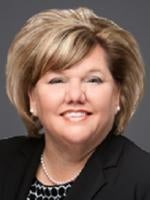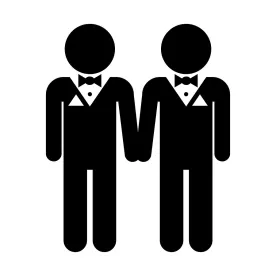On December 5, 2022, the Supreme Court of the United States heard oral arguments in a case on whether a wedding website creator may legally refuse to make websites for same-sex couples based on First Amendment grounds. During the nearly two-and-a-half hour oral arguments in 303 Creative LLC v. Elenis, the high court justices peppered sides with a series of hypotheticals questioning where to draw the line between the First Amendment rights of a business that provides expressive services to not be compelled to provide speech with which they disagree and a public accommodations law that prevents businesses open to the public from discriminating against protected classes, including on the basis of sexual orientation.
The case follows the 2018 Supreme Court case Masterpiece Cakeshop v. Colorado Civil Rights Commission, which involved a bakery that refused to make a cake for a same-sex couple’s wedding reception. In that case, the high court sided with the bakery in a narrow ruling that the Commission violated the Free Exercise Clause of the First Amendment in its enforcement by failing to treat the baker in a religious neutral way.
However, the Masterpiece Cakeshop ruling left open some questions about whether wedding vendors may refuse to serve same-sex couples that the 303 Creative case could potentially answer. The current case could further provide clarity on the extent to which anti-discrimination in public accommodations laws apply to businesses that provide services that are arguably expressive in nature.
Background
Lorie Smith, a website designer and the owner of 303 Creative LLC, filed suit seeking to block the Colorado Civil Rights Commission from enforcing the state’s public accommodation law, known as the Colorado Anti-Discrimination Act, to stop her from refusing to create wedding websites for same-sex couples. Smith alleged that same-sex marriage goes against her Christian faith and belief that marriage is only between one man and one woman. She further seeks to be able to post a statement that she will only create messages—or more specifically platforms for those messages—that are consistent with her faith.
In July 2021, the U.S. Circuit Court of Appeals for the Tenth Circuit held that creating a wedding website for same-sex couples is speech and that the Colorado law would compel Smith to create speech with which she does not agree. However, the court, applying strict scrutiny, ruled that the Colorado Anti-Discrimination Act (CADA) is narrowly tailored to Colorado’s compelling interest in ensuring “equal access to publicly available goods and services.”
Compelled Speech
At the Supreme Court, Smith argued she cannot be compelled to provide speech with which she does not agree and that is offensive to her religious beliefs protected under the First Amendment. She argued that she offers websites of all kinds to both heterosexual and LGBTQ+ individuals but that she does not want to provide wedding websites for same-sex couples even if it is exactly the same website as provided to a heterosexual couple aside from the names of the individuals.
Justices Elena Kagan, Sonia Sotomayor, and Ketanji Brown Jackson pressed Smith’s counsel on where to draw the line with what a creator may or may not be forced to do with several hypotheticals and whether Smith’s argument would allow businesses to discriminate against those with other protected characteristics. Justice Sotomayor questioned whether Smith’s interpretation would allow businesses to refuse to provide wedding services to interracial couples or couples with disabilities due to a belief against marriages between such individuals.
Justice Jackson raised another hypothetical involving a photographer who wants to offer nostalgic photos of “Christmases past” in the form of “classic 1940s and 1950s Santa scenes” or scenes inspired by the 1946 holiday film “It’s a Wonderful Life.” To be consistent with the segregation-era aesthetic and the photographer’s view of how Santa should be depicted, Justice Jackson questioned whether the photographer could refuse to photograph non-white children in the scenes to maintain that aesthetic.
Discrimination
Counsel for Colorado argued that CADA does not target expression but that businesses may not refuse to serve LGBTQ+ individuals or same-sex couples as Smith seeks to do. The relief Smith seeks, counsel for Colorado argued, would grant a license to discriminate to businesses that arguably provide expressive services from photographers to architects to consultants and allow them to refuse services to individuals based on their religion, sexual orientation, or race.
Several justices, on the other hand, questioned whether compelling speech could cut both ways, compelling expression from those with pro-LGBTQ+ views against same-sex marriage or those with pro-choice views to express pro-life messages. Justice Gorsuch queried whether a writer be forced to write speeches that espouse religious beliefs or traditions with which the writer does not agree. May book publishers choose not to publish pro-life books, Justice Brett Kavanaugh asked. May a newspaper that runs select marriage announcements choose to only run same-sex marriage announcements for Pride Month and exclude heterosexual couples, Justice Amy Coney Barrett pressed.
What Speech
The arguments further touched on where to draw the line between wedding vendors who provide nonexpressive services, such as florists, caterers, and businesses renting chairs and those that provide arguably expressive or artistic services like a custom wedding website designer or potentially cake bakers.
Still, Justice Sotomayor repeatedly asked counsel for Smith to point out where in the example wedding website in the record—in which the couple invites people to their wedding and provides location and time details of the wedding events—does the website express the view of the website’s creator that the creator is celebrating or supporting same-sex marriage.
Counsel for Smith argued that the announcement of a wedding for a same-sex couple alone is an expression of a concept Smith believes to be “false” even if the website is identical to one used for a heterosexual couple aside from the names and details.
Counsel for the United States argued that refusing to create a website for a same-sex couple that simply provides the details of a wedding in the same way it would for a heterosexual couple amounts to discrimination against the same-sex couple based on their sexual orientation. At the same time, he suggested that the question might be answered differently if the public accommodation law were to compel the website creator to provide opinion-related content espousing views on marriage.
Key Takeaways
While the Supreme Court held in its 2020 decision in Bostock v. Clayton County, Georgia that Title VII of the Civil Rights Act of 1964’s prohibition of sex discrimination encompasses discrimination against gay and transgender individuals in the employment context, employers that are also public accommodations may need to remain attuned to additional legal obligations when it comes to selling their goods and services. Public accommodations laws in the United States have long mandated that the public have equal access to goods and services regardless of protected characteristics. However, the justices appear divided on the question of whether certain businesses providing expressive services may have a First Amendment right to not provide certain expression that goes against their belief.





 />i
/>i

